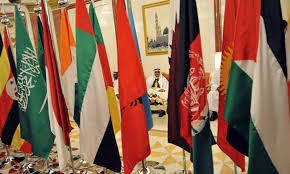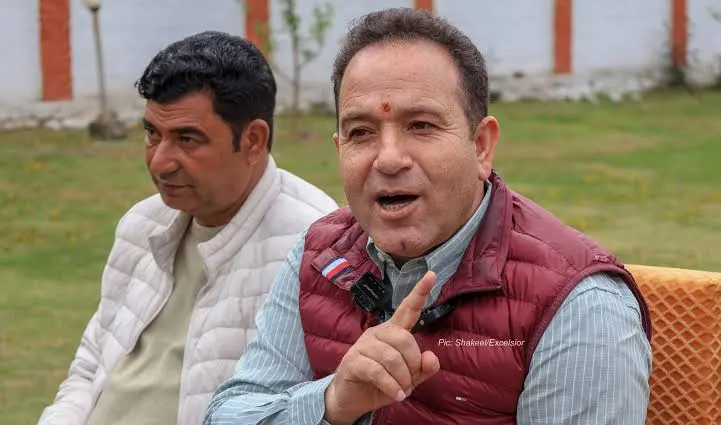Foreign Ministers of Islamic countries have called for resolution of the decades-old Kashmir dispute between Pakistan and India.
 At their annual coordination meeting, the foreign ministers of 57 member states of the Organization of Islamic Cooperation (OIC) adopted the reports of various OIC Contact Groups, including the one on Jammu & Kashmir, which reaffirmed the right to self-determination of the Kashmiri people in accordance with the relevant UNSC resolutions.
At their annual coordination meeting, the foreign ministers of 57 member states of the Organization of Islamic Cooperation (OIC) adopted the reports of various OIC Contact Groups, including the one on Jammu & Kashmir, which reaffirmed the right to self-determination of the Kashmiri people in accordance with the relevant UNSC resolutions.
The meeting was chaired by Sheikh Sabah Al-Khaled Al-Sabah, Foreign Minister of Kuwait and attended by Foreign Ministers of member states and Secretary-General of the OIC.A special feature of this year’s meeting was the holding of an emergency meeting on Al-Quds, which adopted a resolution condemning the Israeli incursion into Al-Aqsa mosque, its practices to Judaize the city of Al-Quds and calling on the UN Security Council to take charge of its responsibility to stop these measures.
Addressing the gathering, Adviser to the Prime Minister on National Security and Foreign Affairs, Sartaj Aziz, underlined the significance of OIC as a common platform to address the legitimate causes of the Muslim Ummah, including the long-standing disputes of Palestine and Jammu & Kashmir, the issues of Cyprus, Nagorno-Karabakh, Islamophobia, Rohingyas in Myanmar and the rights of Muslim minorities in non-OIC countries.
The adviser stressed that Jammu and Kashmir was among the oldest unresolved international disputes at the UN forum.
The denial of right to self-determination to Kashmiri people continued to stain the collective conscience of the international community.
Sartaj Aziz said that elections held under foreign occupation could not be a substitute to the exercise of right to self-determination under a UN plebiscite.
Drawing attention to the gross and systematic human rights violations and the serious escalation in ceasefire violations by Indian security forces, the Adviser urged the international community to impress upon India to end its repression of innocent Kashmiris and to come to the negotiating table for peaceful resolution of all outstanding issues including the issue of Jammu and Kashmir.
Sartaz Aziz regretted that instead of responding to Pakistan’s gesture of goodwill, the Indian side was not only interfering in Pakistan’s internal matters but was also supporting terrorism inside Pakistan.
He reaffirmed Pakistan’s strong support to the legitimate Palestinian struggle to recover their occupied territories and condemned the recent Israeli attack on Al-Aqsa Mosque complex and urged the United Nations to act against Israel’s breach of this Holy Muslim site.
He welcomed UN resolution of 10 September 2015, which allowed flying of Palestinian flag at UN Offices throughout the world.
The Adviser also highlighted Pakistan’s policy on Afghanistan, Syria, Yemen, counter-terrorism, UN reforms and support to Rohingya Muslims.




